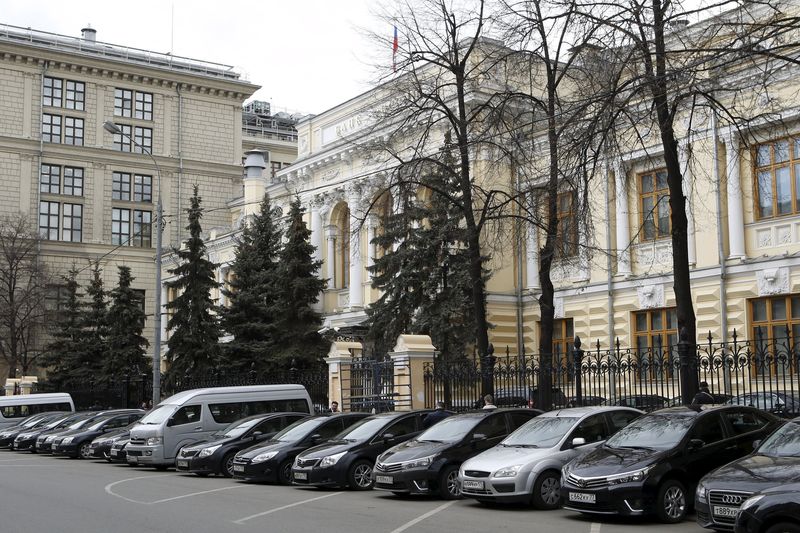(Bloomberg) -- Russia’s central bank edged closer to raising interest rates for the first time since 2014 as its counterparts across emerging markets resort to higher borrowing costs to counter slumping currencies and inflation risks.
Governor Elvira Nabiullina said Tuesday that there were factors in favor of raising interest rates at a meeting next week, even though most evidence still pointed toward leaving borrowing costs unchanged.
The central bank sees higher market volatility, largely as a result of external factors, with investors reassessing risks in emerging economies, Nabiullina told reporters in the Black Sea resort of Sochi, adding that she expects a “real discussion” at a rate meeting Sept. 14.
“There’re a significant number of factors for holding the rate and some factors have appeared that allow to put the option of a possible rate increase on the table,” Nabiullina said. “We’ll assess all the risks.”
The prospect of a hike as soon as next week underscores a change that took hold after the fallout from U.S. sanctions, a decline in the ruble and turmoil in emerging markets. Central banks from Indonesia to Argentina have already lifted rates in an effort to stabilize their currencies.
While the Bank of Russia hasn’t raised its benchmark in almost four years, it stepped off the fast track to monetary easing in 2018 with a pause at three consecutive meetings. Nabiullina had previously said all options will be on the table in case of “a sharp strengthening in pro-inflationary risks.”
The ruble pared its losses after Nabiullina’s comments on Tuesday, trading 0.2 percent weaker at 68.1525 against the dollar as of 1:02 p.m. in Moscow. It’s among this year’s five worst performers in emerging markets with a loss of almost 16 percent against the U.S. currency.
The central bank has estimated that each 10 percent decline in the ruble’s value could add a percentage point to price growth.
Adding to concern over inflation are plans to raise the value-added tax from Jan. 1, a move the Bank of Russia says may boost price growth by as much as 1.5 percentage points. The main impact is expected in the first quarter, when the central bank sees consumer-price growth temporarily exceeding its target of 4 percent. In July, annual inflation hit a high for 2018 even as it remains well below the goal.
“We are seeing that inflation is returning to our target slightly faster than we were earlier forecasting,” Nabiullina said. That’s “primarily because of external factors, the exchange-rate dynamics.”
For now, all 12 economists surveyed by Bloomberg predict the 7.25 percent benchmark will be kept unchanged next week. Still, a discussion over more drastic measures may be heating up.
“While the most likely scenario is that the central bank will keep interest rates on hold in the coming months, comments from Nabiullina imply that she will not hesitate to seriously consider a rate hike,” said Piotr Matys, an emerging-markets currency strategist at Rabobank in London.“Inflationary pressures may continue to rise on the back of a weaker ruble, which is vulnerable to a new round of U.S. sanctions that could be announced in November.”
